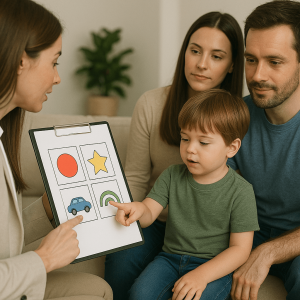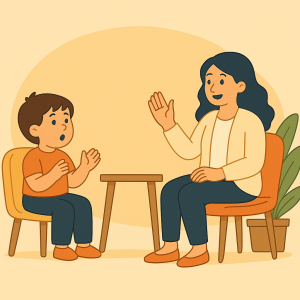Tips to Develop Good Learning Habits
By Prapoorna M
Last Updated: November 26, 2021
How to Improve Study Skills?
Learning habits for Students are essential for academic success. It would help if you cultivated good learning habits to maximize your educational journey as a student. Good learning habits can help you learn and retain information more effectively, stay organized, manage your time better, and ultimately achieve your academic goals. Learning habits for Students that can help them succeed in their academic pursuits. Whether you are a high school student, college student, or graduate student, these habits can help you to develop a strong foundation for academic success. So, let’s dive into some of the most effective Learning habits for Students that can help you achieve your educational goals.
Changing of attitude towards Learning
Here are some tips for students to change their attitude.
- Try to maintain a sound outlook on learning by engaging in positive self-talk.
- Work with another student and try to encourage each other.
- Avoid study mates who constantly express negative views since such attitudes are often transmissible.
Tips for parents to improve child’s attitude toward learning
Set an example. Children often look to their parents when they form their habits. In order for your children to enjoy learning, you yourself must set a good example.
How should be a Student’s Attitude Towards Learning
Here are some ways for you to be an example.
- Read in front of your children or you could read a book with them.
- Join in a course
- By making an increased effort to continue your learning, you are showing your children that education is a life-long and important habit.
- Share your childhood school experiences with your children might be inspirational and prompt them to do something special for their next school assignment.
- Discuss with your children why they need to embrace their education. Explore together the skills and education they’ll need for their dream job.
- Invite some recent high school students over to talk with your children. They can tell your students first-hand which skills are needed to complete their education. This could inspire your children to see why they should value learning.
- Show why it is important to learn
- Let your children chose what they are learning
- Help your child if they are struggling with school.
- Watch educational TV shows, go for trips to museums, and try surfing the Internet together
- Even if they don’t like their regular studies, make sure your family is participating in fun educational activities together. This way your students can see that education and learning does not always have to be boring.
Now, let’s see what a student needs to do.
Develop the Study habits at a slow pace. If you are a student who is finding it difficult to study, be kind to
yourself. It takes time and practice to adjust you to the environment and to develop study habits, especially academic skills. Your half-year grade may not count towards the final grade, which means you have
time to practice and improve. Everybody learns in their own way. Try, discover and be creative. Find
what suits you best.

Don’t stress yourself while learning
It is difficult to learn if you are stressed or bored. Small children learn without trying hard through being relaxed, observing, playing, role-playing, trying things out, making mistakes, and being interested in what they are doing. They don’t regard setbacks as failures; they don’t worry about what others think; and they don’t tell themselves they might not be able to learn. When a child falls over, she or he just gets up and moves again, and eventually walking becomes easy. Allow yourself to learn in this way.
Use many senses
By using your senses of sight, hearing and touch, and the more you use fine muscle movements in looking, speaking, writing, drawing, or moving the body, the more opportunities you give the brain to take in information using your preferred sense. Studies have proven that the use of several senses while learning, gives the brain more connections and associations, making it easier to find information later, which assists memory and learning. Use your senses to the full and to combine movement into your study. This will make learning easier and more interesting.
Identify what attracts you
It is easier to learn by keeping desirable outcomes in mind than by forcing yourself to study out of duty. Some aspects of study may be less attractive to you, such as writing essays, meeting deadlines or sitting
exams, and yet these also tend to bring the greatest satisfaction and rewards. It is within your power to find in any aspect of study that attracts you. For example, visualize yourself that you are enjoying your study or your later rewards. Hear your own voice telling you what you are achieving now. Your power to imagine would catch hold of these incentives and will find ways of making them happen, for you.
The examples of such talk could be like
- I enjoy finding out new ways of studying
- I love the challenge of dealing with new ideas
- My reading skills are improving every week
Take responsibility for your learning
At higher classes it is a good thing for students to take on increased amounts of responsibility for their learning. You will attain with sufficient preparation to study in an independent way for much of the
week. If you are not fully prepared in a certain area, accept that it is your responsibility to catch up and work on that.
Trust in your own intelligence
Many of the students, who take up a course, worry if they are not intelligent enough for their course. Some students who were not so good at schooling begin to worry that being a good student is ‘not in their genes’. Panic about this can, make it hard to learn. Many students who were not ideal students at lower classes do extremely well at higher class, following thorough preparation.
Find your own way
Recognize your learning preferences. In spite of having a lot in common, each of us learns in an individual way. The important thing, however, is not to discover which ‘type’ you are but rather to recognize the many different elements that contribute to how you yourself learn best. If you regard yourself as a ‘type’ you may over identify yourself with that type, get stuck with that image of yourself and leave you with inflexible opinions about the one way you learn. Hence you need to experiment with strategies and skills which you currently under-use. The human brain is highly adaptable and able learners move easily between different strategies and learning styles, depending on the task in hand.
Being aware of how the way that you learn best, helps you to adapt your learning environment and your approaches to learning to fit where you are now. This is a great step for improvement. Think and analyze more clearly why you did well or badly at school, matching it to your learning experience and your preferences. Take in charge of your learning which gives you opportunities to personalize the learning experience to suit yourself.
Being in control of your own learning isn’t easy. It requires a range of personal skills and attributes to manage independent learning successfully, to use time well, to interpret sensibly what is going on
when study seems more difficult or your motivation declines, and to adapt your strategies when your current ones don’t seem to deliver what you want. Then, “Managing yourself” will be a key aspect of managing study.
Managing yourself for study provides background and approaches that help you to build a solid foundation in managing your studies. It looks at the range of skills and understandings typically expected of students at this level, so that you can check for yourself whether you are on the right track. These learning habits will help you grow
Ability to set goals to improve your work
In order to improve your work and have the ability to organize your time you need to keep track of time. For that, you must keep these Learning habits in mind.
- Know when and where you should be for scheduled classes, events, and exams
- Know when your work has to be handed in
- Keep to deadlines for handing in work. Know when and how you learn best.
- You have to be able to work on your own a lot
- Always go to class
- Take a good regular class notes
- In class, monitor yourself whether you are fully understanding the ideas or not.
- Spend some time within 24 hours after class to read over your class notes, to improve them if necessary, to reflect about the ideas, and do any assigned exercises or homework problems.
- Go through your class notes, if there are any ideas that you have difficulty in understanding, check in the textbook for clarification or with someone who can help like teacher or classmate.
- Read your text and do other appropriate preparatory work before going to class.
- When you read the text, pay attention to the text structure like marginal questions, text in bold or italics, headings, and the captions that accompany illustrative material in the margins.
- Read the text. Think whether you can remember the ideas easily or not.
- Summarize the main points of the text, highlight, make marginal notes, make summary notes, and/or use the study guide.
- Review past text chapters and class notes even when you don’t have exams.
These are all the important points to be kept in mind, while in a class. You can always make your own notes at home when you learn something. Feel free to contact our team of experts for any student related queries, like underachievement in kids, controlling test anxiety and some test-related tips etc. to name a few. You can also have an online counseling session. Book an appointment, today.
FAQs for How to Improve Study Skills
1. Why are good learning habits essential for students?
- Good learning habits are essential for students because they help maximize their educational journey by enabling them to learn and retain information effectively, stay organized, manage time efficiently, and achieve academic goals.
2. What is the significance of changing one’s attitude toward learning?
- Changing one’s attitude toward learning can lead to more productive study habits. A positive outlook on learning can motivate students, encourage them to collaborate with peers, and avoid negative influences that may hinder their progress.
3. How can parents improve their child’s attitude toward learning?
- Parents can set a positive example by engaging in learning themselves, reading in front of their children, enrolling in courses, sharing their school experiences, discussing the importance of education, and connecting their children with recent high school students for inspiration.
4. What are some practical tips for students to develop good study habits?
- Students should develop study habits gradually, be patient with themselves, and explore various learning methods to find what suits them best. They should also avoid unnecessary stress while learning.
5. Why is it essential not to stress while learning?
- Stress can hinder the learning process. Students are encouraged to relax, observe, play, try things out, make mistakes, and be interested in what they are learning, similar to how young children learn effortlessly.
6. How can students make their learning more effective by using their senses?
- Engaging multiple senses (sight, hearing, touch) while learning can create more connections in the brain, making it easier to remember information later. It enhances memory and learning. Students are advised to incorporate movement into their study.
7. What is the importance of taking responsibility for one’s learning?
- In higher classes, students should take on more responsibility for their learning. This involves preparing to study independently, catching up on areas where they are not fully prepared, and managing their time effectively.
8. How can students build trust in their own intelligence?
- Many students may doubt their intelligence, but it’s crucial to trust in their abilities. With thorough preparation and practice, students often perform better than expected, even if they weren’t top students in lower classes.
9. Why is finding one’s own way of learning important?
- Recognizing one’s learning preferences and adapting their learning environment to suit their needs is crucial. Every individual learns differently, and understanding how you learn best allows for a more personalized and effective learning experience.
10. What are some key points to remember for students looking to improve their study skills?
- Students should set goals, be organized with their time, attend classes regularly, take good class notes, review class notes, understand class material, complete assigned exercises, and engage in preparatory work before class.
11. How can individuals seek expert advice for student-related queries, test anxiety, or academic performance issues?
- Individuals can contact a team of experts for student-related queries, including underachievement in kids, test anxiety control, and test-related tips, among others. They can also schedule online counseling sessions for assistance and guidance. Booking an appointment is available for these services.
About the Author:
Prapoorna Mangalampalli, Psychologist
Prapoorna, an author with dual master’s degrees in Psychology and English, excels in exploring and enhancing human experiences. Her writing, characterized by deep empathy and insight, primarily focuses on the complexities of counseling, spanning areas such as online, marital, relationship, child, family, and career counseling. Specialized training in various counseling sectors underscores her dedication to positive change. In her blogs, Prapoorna offers valuable guidance and a unique perspective for parents of children with Autism and special needs, creating a supportive community in this realm.
Book your Free Consultation Today
Parent/Caregiver Info:
Client’s Details:
* Error Message







